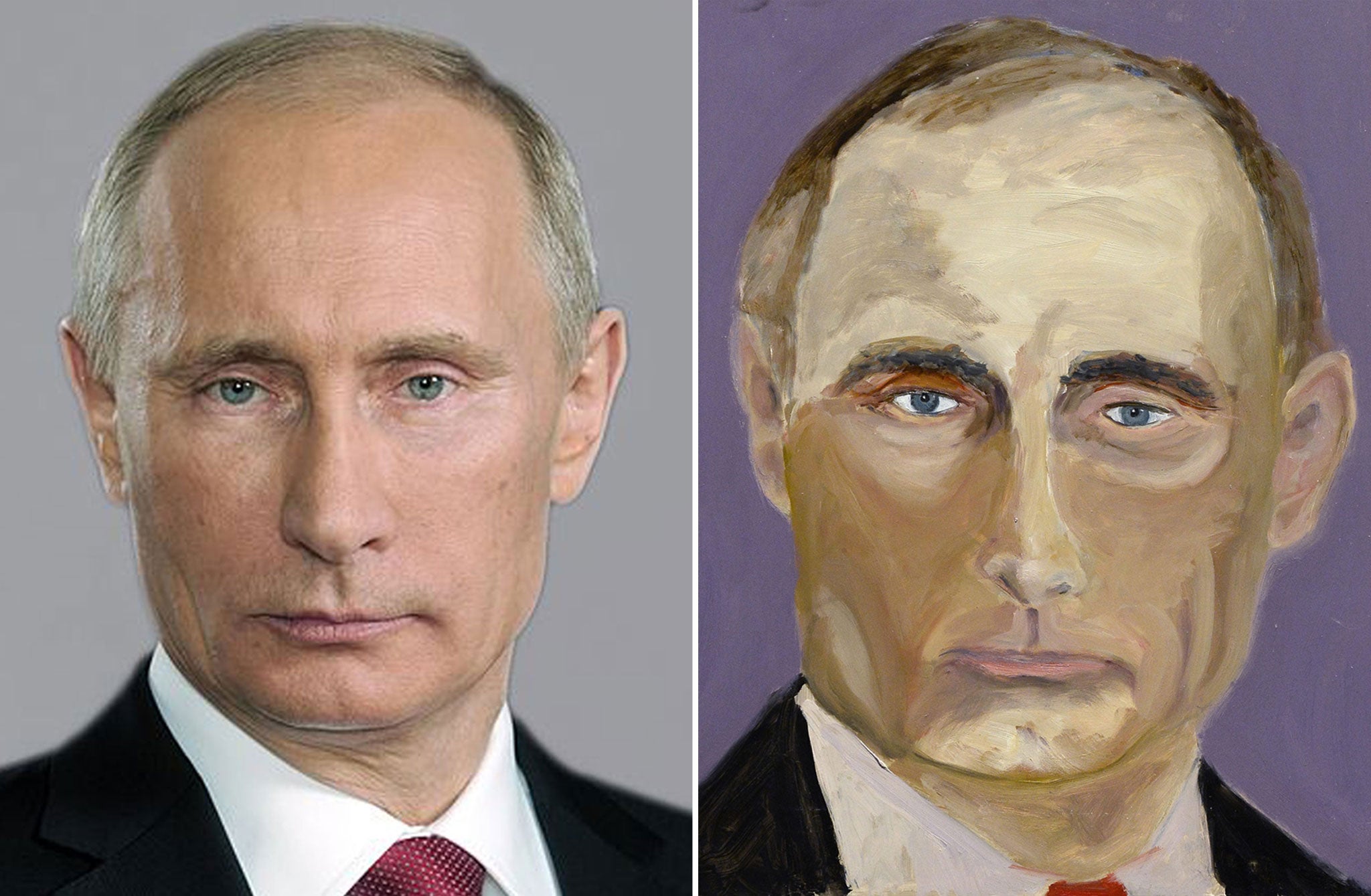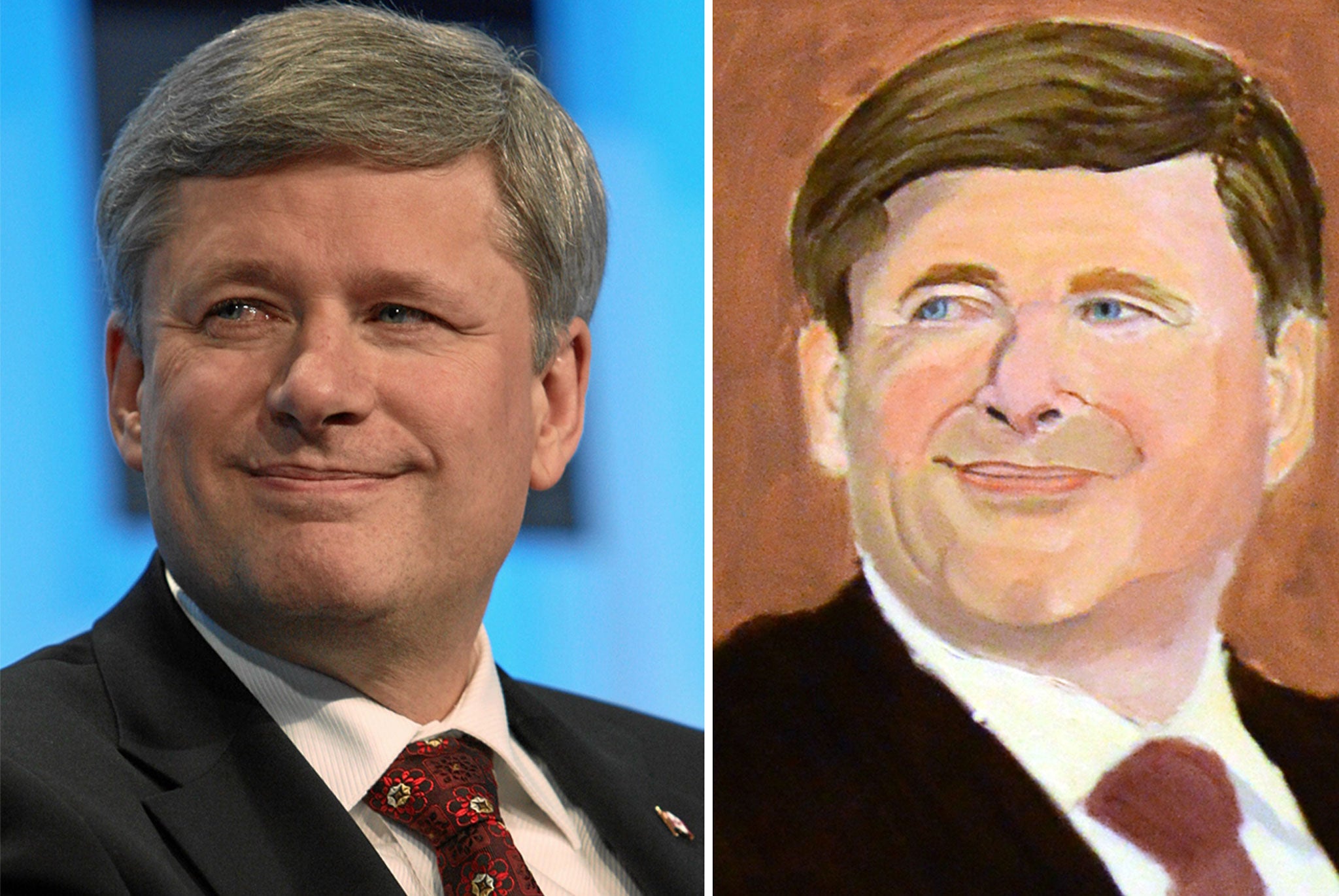George Bush's paintings are 'copied off Google images and Wikipedia' art critic claims
The former US president's collection of portraits of world leaders is currently on show at the 'Art of Leadership' exhibition in Dallas

Your support helps us to tell the story
From reproductive rights to climate change to Big Tech, The Independent is on the ground when the story is developing. Whether it's investigating the financials of Elon Musk's pro-Trump PAC or producing our latest documentary, 'The A Word', which shines a light on the American women fighting for reproductive rights, we know how important it is to parse out the facts from the messaging.
At such a critical moment in US history, we need reporters on the ground. Your donation allows us to keep sending journalists to speak to both sides of the story.
The Independent is trusted by Americans across the entire political spectrum. And unlike many other quality news outlets, we choose not to lock Americans out of our reporting and analysis with paywalls. We believe quality journalism should be available to everyone, paid for by those who can afford it.
Your support makes all the difference.As a former President of The Most Powerful Country In The World, George W Bush has significantly greater access to world leaders than most budding artists.
For his remarkable collection of portraits of world leaders, currently on show at the 'Art of Leadership' exhibition at the Bush Presidential Centre in Dallas, Texas, the former leader of the free world appears, however, to have resorted to using a simplistic approach to producing the startling likenesses.
Art critics have pointed out that a number of the 30 portraits in the exhibition appear to be based on images thrown up by a cursory search of the person's name in Google Images. In some cases the portrait seems to have been based on the very first image result on the search engine.
Rather remarkably, even the portrait of his own father, someone who he surely could have asked to sit for him, appears to be based on an Associated Press portrait which appears on the first page of Google Image results.
First to spot the trend, which was reported in the Guardian, was critic Greg Allen, who pointed out that many of the pictures appear to have been sourced from the subject's Wikipedia entry.
The former president's portraits of Tony Blair, John Howard, Angela Merkel and Russian leader Vladimir Putin, have an uncanny similarity to the pictures on the individual's Wikipedia entry.
"Is this meaningful in any way? If he had one, it would mean Bush's studio assistant is very, very lazy," Allen notes.
"But in all his discussion of it, Bush's painting practice appears to be a solitary one. He apparently did not tap the enormous archive of photos, taken by the professionals who followed him every day for eight years, which are contained in his giant library."
"Instead, it seems, he Googled the world leaders he made such impactful relationships with himself, and took the first straight-on headshot he saw," he adds.
This basic approach to the paintings, which it is fair to say have not been an unqualified critical success, seems at odds with Bush's statements about their meaning and his motivation to paint them.

On a gallery walk through with Dallas Morning News reporter Tom Benning, Mr Bush explained that he painted his father, George H.W. Bush, in a "loving way," as a "gesture of compassion."
He told the reporter he depicted Blair as a "good pal" with a "determined face", and aimed for a "sympathetic portrait" of Angela Merkel.
The approach rather brings into question some of the more favourable reviews of the paintings.
The Washington Post for instance explains why the portrait of Putin is great: "The painting of Putin doesn't necessarily stand out because of artistic merit (though I'd argue that it is a really good painting aesthetically)."
"What's really fascinating is to watch Bush grapple with the identity of Putin, a man he once claimed to understand well. "I looked the man in the eye. I found him to be very straightforward and trustworthy," Bush famously said after first meeting his Russian counterpart in 2001."
Join our commenting forum
Join thought-provoking conversations, follow other Independent readers and see their replies
Comments